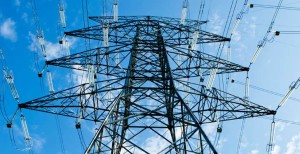News
Making Your Own Off-The-Grid Energy
Going Off the Power Grid
 Whether taking ‘going green’ to the next level, or becoming a ‘Prepper’ and getting ready for the unknown, if you’re considering finding your energy independence you’re not alone. If you want to go off the grid without living like you’re stuck in the pre-Edison era, there’s a lot to know before you cut the power lines.
Whether taking ‘going green’ to the next level, or becoming a ‘Prepper’ and getting ready for the unknown, if you’re considering finding your energy independence you’re not alone. If you want to go off the grid without living like you’re stuck in the pre-Edison era, there’s a lot to know before you cut the power lines.
While you might not be able to run your home theater system at the same time as pumping your central air conditioning, it is possible to live a life with many of the modern conveniences on renewable energy alone.
The first thing you need to acknowledge, is that one source of renewable energy is not certain or stable enough to provide you with consistent and reliable power.
Solar Power
This green energy source is becoming less expensive and more reliable all the time, and advances in better technology make it possible to store this electricity for longer periods, making this renewable energy the best choice as your primary source for DIY energy. However, unless you live in a location where the sun is shining most of the year, and even then, it is unlikely that solar energy will be able to provide you with enough power throughout all seasons and situations to keep you living as you’re accustomed to. Even with the modern improvements and ideal conditions, solar power is not able to consistently meet the needs of most modern people.
Solar Cable FAQS – to Equip Yourself with
Wind Power
A suitable compliment for your solar panels might be wind energy. This is largely because if conditions are not ideal for producing solar energy, it is likely they will be conducive to creating wind energy. The combination of these two renewable sources will likely come close to providing the levels of energies required to fuel the average home. However, wind turbines are well known for breakdown issues, so it’s likely you’ll need more than one to consistently harness this energy source.
Developing your own at-home power plant will certainly take some research and financial planning, but you won’t need an engineering degree or stacks of cash to get your green living plans off the ground.